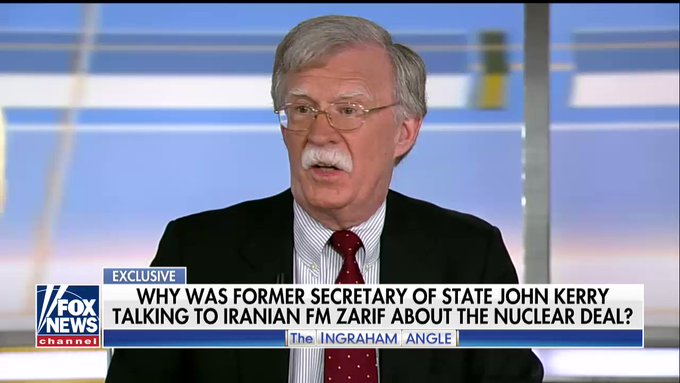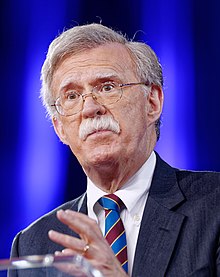The coup d’etat in Turkey is fresh in our memory. There are those who contest the word coup and they may have information to justify their take on what really happened. As we said, many Turks believe this was a setup by Erdogan – so he could take control over the levers of government. And in the aftermath of this so-called coup he did just that. Closing down opposition media organizations, rationalizing the military and jailing independent judges.
He blames the United States for providing succor to his arch enemy Fethullah Gulen. Muhammed Fethullah Gülen ,who lives in Pennsylvania, has denied all charges that he was involved. Erdgoan demands that we extradite him – fat chance of that happening. Gülen has suggested the coup was in-fact a “self-coup” carried out by Erdoğan to consolidate his grip on power, a belief shared among some analysts and many Turks. Putting all of the facts together it is not hard to see the bellicose nature of the Turks under Erdogan. But it is not wise to disregard his ways because a trouble maker on a quest of
Since the coup attempt Turkey’s Erdogan has gone on a rampage in Syria and against the Kurds living in Turkey. He blames them for the ills Turkey is facing. Also, Erdogan has belligerent words for the Greeks who control part of the island of Cyprus. (see below) But his number one nemesis is Israel. There is no love lost between the two. Lately, Netanyahu and Erdogan have exchanged fighting words. Israel has Erdogan’s number and is not afraid to play it.
Turkey, a member of NATO, big mistake was made in letting him join the exclusive club, has taunted the United States and its allied members by breaking bread with Russia and Iran. The time has come to take him out – Grub Hub is ready to deliver the package. With John Bolton in control it won’t be long before the Muslim’s head starts to roll.
big mistake was made in letting him join the exclusive club, has taunted the United States and its allied members by breaking bread with Russia and Iran. The time has come to take him out – Grub Hub is ready to deliver the package. With John Bolton in control it won’t be long before the Muslim’s head starts to roll.
“So let it be written, so let it be done.”
From the West’s perspective, the Turkish government is the equivalent of a close relative with a substance abuse problem: President Recep Tayyip Erdogan has become addicted to authoritarianism. The effects on the family — in this case the NATO alliance, which has included Turkey since 1952 — are devastating. It’s time for President Trump and French President Emmanuel Macron, two leading NATO heads of state, to have a clarifying conversation with Erdogan about his country’s self-destructive impulses.
Trump has shown patience with Turkey’s ongoing military operation against Kurdish militias in northern Syria, which Erdogan considers an existential threat. This should make the Turkish leader more inclined to listen to the U.S. president. However, so far Israel has stayed on the side lines, but in short order will be losing its patience; this means that they most likely will support the Kurdish opposition going forward.
(from Wikipedia)Cyprus was settled by Mycenaean Greeks in two waves in the 2nd millennium BC. Cyprus was placed under British administration based on the Cyprus Convention in 1878 and was formally annexed by Britain in 1914. While Turkish Cypriots made up 18% of the population, the partition of Cyprus and creation of a Turkish state in the north became a policy of Turkish Cypriot leaders and Turkey in the 1950s. Turkish leaders for a period advocated the annexation of Cyprus to Turkey as Cyprus was considered an “extension of Anatolia” by them; while, since the 19th century,[13][14] the majority Greek Cypriot population and its Orthodox church had been pursuing union with Greece, which became a Greek national policy in the 1950s.[15] Following nationalist violence in the 1950s, Cyprus was granted independence in 1960.[16] In 1963, the 11-year intercommunal violence between Greek Cypriots and Turkish Cypriots started, which displaced more than 25,000 Turkish Cypriots[17][18] and brought the end of Turkish Cypriot representation in the republic. On 15 July 1974, a coup d’état was staged by Greek Cypriot nationalists[19][20] and elements of the Greek military junta[21] in an attempt at enosis, the incorporation of Cyprus into Greece. This action precipitated the Turkish invasion of Cyprus on 20 July,[22] which led to the capture of the present-day territory of Northern Cyprus in the following month, after a ceasefire collapsed, and the displacement of over 150,000 Greek Cypriots[23][24] and 50,000 Turkish Cypriots.[25] A separate Turkish Cypriot state in the north was established by unilateral declaration in 1983; the move was widely condemned by the international community, with Turkey alone recognizing the new state. These events and the resulting political situation are matters of a continuing dispute.



 Ambassador John Bolton heads to the White House as National Security Advisor A game changer, familiar with navigating the swamp and with vast experience in wading through the bureaucratic matrix. When it come to dealing with rouge regimes Mr Bolton is our guy. He now works for a man who shares the same philosophy first hand. Rogue states ruled by so-called leaders for life, such as
Ambassador John Bolton heads to the White House as National Security Advisor A game changer, familiar with navigating the swamp and with vast experience in wading through the bureaucratic matrix. When it come to dealing with rouge regimes Mr Bolton is our guy. He now works for a man who shares the same philosophy first hand. Rogue states ruled by so-called leaders for life, such as 